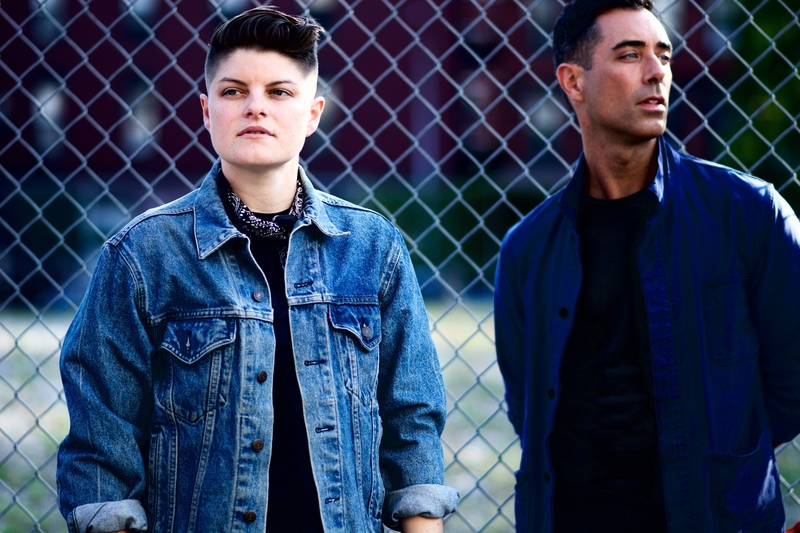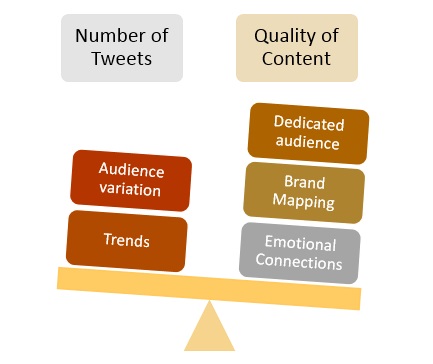This Fall, the New York City-based troupe, The Beautiful Soup Theater Collective is reproducing the play by Leah Napolin and Isaac Bashevis Singer, Yentl.
In the story written by Singer, Yentl the Yeshiva Boy, a young Jewish woman living in Poland at the end of the 19th century, desires nothing more than to study from the sacred text, the Talmud. This means defying the rule that women are prohibited from reading scripture; and the only way she can pursue her dreams is by impersonating a man. Playwright Leah Napolin would later adapt this story into a play, which would then be adapted into a film in 1983, starring the actress that immortalized the character of Yentl, Barbara Streisand.
The BSTC production of the play under the direction of playwright, Steven Carl McCasland, doesn’t have the same pizzazz as the Streisand film, with the various musical numbers sung by the main character. Instead, the music in this 2012 remake is pushed in the background to conveying a restricting, uniform and orthodox atmosphere of a Polish town at the turn-of-the-century. Men and women sing songs in four-part harmonies that sound liturgical. All songs are composed in minor keys; with maybe just a few staccato rhythms that would make only the most attentive listeners do a double take but nothing more.
So if the music doesn’t do it, what makes this production of Yentl so desirable? Simply put the themes of cross-dressing and bi-sexual tendencies that are still a taboo in our society today, and most importantly, the lessons we learn from watching the main character explore these taboos.
Today, so many young people like Yentl are on a search for their own identity and eager to reach their desired destiny. Sometimes that requires temporarily stepping away from a life they know or are expected to live and understanding the realities of the life they want.
“God, what did you bear women for?” 
Yentl grew up as the only girl in her village whose father taught her the Talmud. During this time, a woman was prohibited from reading scripture. As Yentl matures, her parents realize she is not ready to be a wife. Further, Yentl has already set her sights for her own future on continuing her studies. Yentl’s wishes put her at a constant disagreement with her parents, even her father.
In the play’s opening scene, Yentl, played by Mallory Berlin, is quarreling with her father, played by Orlando Iriarte. Mallory successfully displays Yentl’s desires by bluntly dismissing the idea of living as a housewife. Meanwhile, Orlando exhibits a blatant impatience as a father that tries to deal with his stubborn daughter.
Strangely though, there is a compassion and bond between father and daughter that audiences will immediately feel. Although Orlando’s character recognizes that though he is slightly responsible for Yentl’s negative attitudes towards marriage and the feminine way of life; he also treasures the relationship he has with his daughter, which might have been facilitated by Yentl’s interest in the Talmud.
 When Yentl loses her father in the second scene of the first act, audience members can further understand why she is more adamant and more anxious to live a different way of life. In this moment of the play, Yentl is mourning her father’s death with his colleagues at a synagogue, and she joins the men in saying Kaddish, a prayer. However; they do not welcome her because women are forbidden from reciting this prayer and thus, leave her to herself. Then Mallory helps unleash Yentl’s voice in a time of confusion and sorrow. She says at the top of her lungs:
When Yentl loses her father in the second scene of the first act, audience members can further understand why she is more adamant and more anxious to live a different way of life. In this moment of the play, Yentl is mourning her father’s death with his colleagues at a synagogue, and she joins the men in saying Kaddish, a prayer. However; they do not welcome her because women are forbidden from reciting this prayer and thus, leave her to herself. Then Mallory helps unleash Yentl’s voice in a time of confusion and sorrow. She says at the top of her lungs:
“God, what did you bear women for? To have children, to light candles? Then why give them souls?”
Our protagonist’s father, the only man that ever accepted Yentl for who she really was has passed; and now she worries that her only means for survival is to marry and abandon her dreams. It’s clear to her that In order to continue on to a life of study, she must travel into another town, change her identity and attend the Yeshiva, a Jewish school. So, she disguises herself as a man by the name of Anshel.
As a man, Yentl enjoys the freedom to study
In the second scene of the second act, Anshel comes off as a shy, stubborn and defensive young man. Yentl makes sure that Anshel keeps his head down in the Talmud in the company of male classmates, insisting he needs to study though he is ahead of all the students. Yentl does not want anybody to wonder why Anshel refuses to undress in front of other men; why he cannot grow a full beard; or why he covets at the naked body his 24-year-old classmate, Avidgor who is played by Peter Oliver.
Viewers watch as Yentl learns to behave like a man. Throughout the play, Yentl becomes close with Avigdor as a study partner and a friend under the disguise of Anshel. Avigdor reveals personal information to Anshel, including that he is already divorced and still in love with his ex-wife, Hadass, who is played by Kim Sweet. Avigdor even asks Anshel to talk with Hadass. Avigdor trusts that Anshel will find out whether Hadass still has any feelings left for Avigdor. 
For the first time in her life, Yentl feels like an intellectual equal among men that are not her father. As Anshel, she enjoys the freedom she so desired; but little does she know that even men in these Jewish towns are expected to fulfill specific roles as well. Our cross-dressing heroine slowly discovers this as she becomes better acquainted with Hadass in order to learn how she feels about Avigdor.
While Yentl plays the information medium, Avigdor develops an uncanny attraction for Anshel, who as far as he’s concerned is just another Yeshiva boy. This is evident when Avigdor expresses to Anshel, “Why can’t women be more like you?”
One might see Oliver’s character, as what we would call today, bi-curious. However, Avigdor is not one to consider a romance with another man. Avigdor admits to Anshel that he still needs a woman in his life, and announces that he is ready to marry another woman in town, Pesha.
The bi-curious and the heartbroken: Yentl lies with a woman
Like a good friend, Avigdor suggests that Anshel marry Hadass, but little does Avigdor realize that inside Anshel there is a woman slowly falling in love with him.
 At Avigdor’s engagement party, Anshel gets drunk, flirts and kisses the groom, falls on the floor and almost blurts out Yentl’s true identity. As a result, Avigdor leaves the Yeshiva. Yentl who feels disappointed and betrayed, asks for Hadass’ hand in marriage in order to get Avigdor’s attention, and eventually, it works.
At Avigdor’s engagement party, Anshel gets drunk, flirts and kisses the groom, falls on the floor and almost blurts out Yentl’s true identity. As a result, Avigdor leaves the Yeshiva. Yentl who feels disappointed and betrayed, asks for Hadass’ hand in marriage in order to get Avigdor’s attention, and eventually, it works.
By the middle of the play, viewers have so far believed that the gender-bending and bi-sexual themes within this play have been innocent. The second half however shows the dangers that our heroine faces in carrying the disguise of Anshel. Not only does she risk revealing her true identity; but the further Yentl is dragged into this love triangle, the easier it will be for her to commit one of the ultimate sins – “laying with one and wishing for another.”
In the scene that follows, Hadass and Anshel sit across from one another talking about the engagement, the hero turns to the audience, in a narrative, comments to the audience on how great it feels to have the freedom and power of a man.
Audiences now see a vengeful and selfish side of Anshel. Berlin successfully exhibits Yentl’s full transformation into her male disguise as she shamelessly exercises knowledge and power over a previously heart-broken woman who believes she is receiving a second chance in marriage. Anshel and Hadass lie in their wedding bed, and Hadass has no clue that it is Yentl’s fingers penetrating her; she believes she is making love to a man. Further she expresses her true emotions to Anshel when she says, “I feel like we are two bodies with one soul.” Then Anshel reveals that he feels the same way…about Avigdor.
The realities of living like a man 
As the marriage between these two develops, Hadass slowly becomes unhappy while Yentl grows tired of constantly upholding her disguise. Playing the role of the male did have its perks, like freedom to study scripture and choose any spouse. However, Yentl discovers that the pressures of being a proper spouse and having children can be just as taxing for a man, as it is for a woman.
Viewers now watch Yentl come to the end of her days as Anshel in a scene where Berlin’s and Sweet’s characters are trying to communicate their feelings to one another. Here, Yentl insists that Hadass can learn the Talmud like any man and find personal happiness in this. As Anshel opens the book and starts reciting the first lesson to Hadass, she directly expresses a lack of interest.
Yentl fulfilled her dreams of studying the Talmud among men as an equal, and now she learns that not all women have the same desire. Some, like Hadass prefer to live the life that is expected of them and find contentment in tradition. Afterwards, Yentl leaves Hadass, and makes arrangements to meet with Avigdor so she can reveal to him her true identity.
While Avigdor is upset to learn that his best friend from the Yeshiva is in fact no man at all, his emotional attachment to Anshel has not disappeared. Avigdor even proposes the idea of marriage to Yentl in hopes that she will accept. After all, Avigdor needs a woman. Yentl however refuses.
Our protagonist recognizes the bond she had with Avigdor once was false. Avigdor is really in love with Anshel, but Yentl has finally become tired of playing the man in order to feel accepted and appreciated for her intellect. She wants to be herself again.
Identifying with Yentl: Neither a Blessing nor a Curse
At the end of the play, Yentl has completed a full circle and has come back transformed. She traded back her pants for her skirt. The only thing she has not given back is her love for the Talmud.
One can say that through her gender-bending journey, Yentl learned more personal lessons than any man at the Yeshiva. She committed the ultimate sin; partook in taboos; and came out transformed. Yentl realizes that being a woman is not a curse and being a man is not a blessing, and living one life is not necessarily better than living another.
Yentl’s lessons might resonate with individuals in today’s society that might believe people belonging to a specific gender, race, ethnicity, sexual orientation or religion have an easier time achieving certain goals and living a fulfilling life. The Beautiful Soup Theater Collective’s production of Yentl proves to us that such thoughts are based more on beliefs than actual facts.
Yentl became a man and entered a Yeshiva based on the belief that she would have complete power and freedom over her destiny. Once she experienced the life of a Jewish man, our heroine realized that Anshel would experience just as many restrictions as a woman. The takeaway from Yentl’s experience is learning the sacred text and reciting from it freely and having a male counterpart, like Avigdor accept her as an equal.
The BSTC is currently showing Yentl at the Gene Frankel Theater from now until October 21st. Visit the official Yentl Facebook Page for this show to learn more.


















